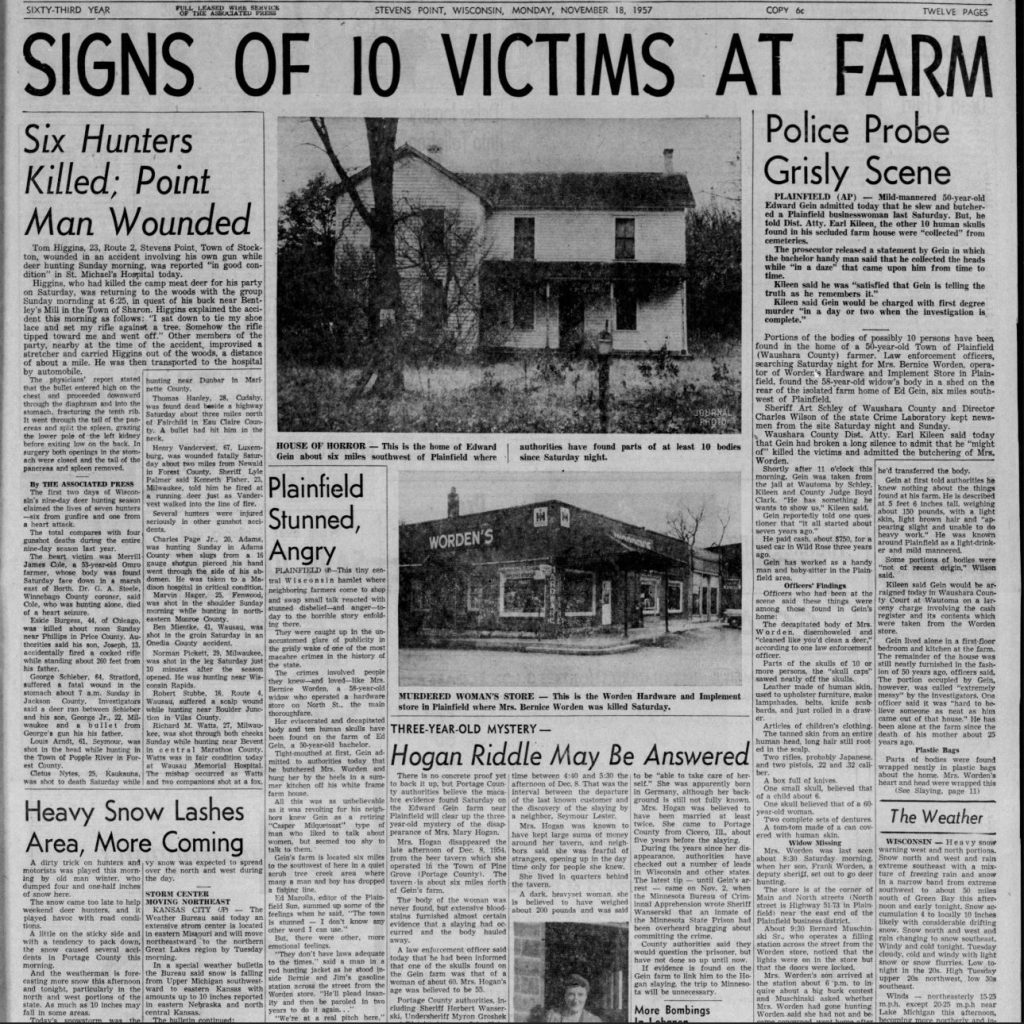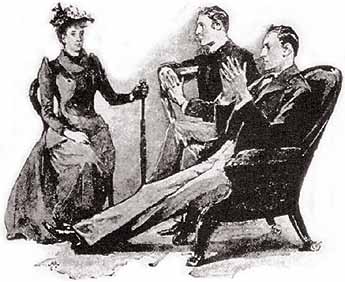Happy September, my fellow creatives! Fall is not too far away. School is starting for my three Bs while I tackle finals for the summer term. I was blessed to take my kids to see a beloved fellow blogger and friend, Peggy from Where to Next?, as she was traveling through the Midwest this summer. It was so wonderful to chat in person in the midst of Bash’s million questions! Our drive to meet her took us through a lot of rolling hills of bright green farmland, corn and wheat on the cusp of harvesting beneath sapphire skies.

Prologue: Life in Rural Wisconsin
Wisconsin’s countryside has always been near and dear to me, something I feel would be worth exploring in how other creatives like Michael Perry view it…but that’ll be a post for another day. Today, I’d like to return to something I once shared on this blog long long LONG ago about why I write stories set in Wisconsin.
The adventures of Sherlock Holmes resonate deeply with me for two reasons. First, they were dearly loved by my father, who would, on a rare evening when he could delay his church work, read a story aloud to me at bedtime. I still remember the thrill as he described Dr. Roylott’s fate in “The Adventure of the Speckled Band,” or the sadness in his voice when Watson discovers Holmes’ note by Reichenbach Falls. I devoured these stories, despite my mother’s attempts to interest me in more child-friendly works such as the Little House books. Nothing doing, especially after I read “Copper Beeches,” for that brings me to my second reason: our town, our state, really, fit the description Holmes gave of England’s picturesque countryside.Wisconsin is filled with hidden towns, small growths of community where railroads and highways meet, places that no one finds unless they mean to find it. Rock Springs was a town of 600 when I was a child, a little grain-fill stop for the railroad. We didn’t even have a gas station until I turned 5, and our library, a small portion of the town’s community center, could fit in a utility closet (it probably WAS a utility closet at one point). Farms and wild wood filled the gaps between towns. Unless, of course, you went towards Wisconsin Dells, where the wilderness is trimmed and prepped and ready for its mandatory close-up before the tourist rushes to the proper civilization of water parks and casinos.
We drove through those wild patches often. I never tried to occupy myself with books or toys in the car. There was too much to see, out there in those scattered homesteads, too much to wonder about. What happened inside that dying barn? Why is that gravel drive roped off, and where does it lead? Where are all the people for those rusted cars littering the field?
This is the Wisconsin I live in now. The land dips and rises in unexpected places. The trees may crowd a rural highway so much you can lose yourself driving, only to have the tunnel burst open to sunshine and a white-crested river running beneath a bridge you’d swear had never seen a car before. In Rock Springs, one could stand on the lone highway through town and hear snowflakes land beneath the orange street lights.
As a child, I was always making up stories in my head about the farms we passed. I didn’t think true evil could be committed in them. Only as an adult did I learn better.

This knowledge of Wisconsin’s hidden evils gave me a new appreciation for the Sherlock Holmes tales I loved as a kid–not because Holmes brought truth and justice to light wherever he went, but because he didn’t just stay in London. Holmes himself knew just how dangerous the countryside could be in spite of its picturesque beauty. Let’s peruse a few cases to see just how the rural setting played a role in his cases, shall we?
Case 1: The Adventure of the Copper Beeches

A woman seeks Holmes’ counsel as to a job offer with a bizarrely high salary with equally bizarre requirements. The minor suspicion leads to a mystery of deadly deception.
So this is the story with the iconic train ride into the country and the conversation Holmes and Watson have about rural England. Here’s the majority of that exchange:
It was an ideal spring day, a light blue sky, flecked with little fleecy white clouds drifting across from west to east. The sun was shining very brightly, and yet there was an exhilarating nip in the air, which set an edge to a man’s energy. All over the countryside, away to the rolling hills around Aldershot, the little red and gray roofs of the farm-steadings peeped out from amid the light green of the new foliage.
“Are they not fresh and beautiful?” I cried with all the enthusiasm of a man fresh from the fogs of Baker Street.
But Holmes shook his head gravely.
“Do you know, Watson,” said he, “that it is one of the curses of a mind with a turn like mine that I must look at everything with reference to my own special subject. You look at these scattered houses, and you are impressed by their beauty. I look at them, and the only thought which comes to me is a feeling of their isolation and of the impunity with which crime may be committed there.”

“Good heavens!” I cried. “Who would associate crime with these dear old homesteads?”
“They always fill me with a certain horror. It is my belief, Watson, founded upon my experience, that the lowest and vilest alleys in London do not present a more dreadful record of sin than does the smiling and beautiful countryside.”
Holmes strikes upon a critical point: isolation. Rural communities, then and now, are not nearly as connected as neighborhoods in the urban setting. Even with the internet and all our technological innovations, one can be very, very cut off in the countryside. I still distinctly remember visiting a friend at her farmstead many years ago, and feeling downright oppressed by the silence of the farmland’s night. Absolute, utter silence. No wind. No bugs. No cars. Nothing. The film Alien may have coined the phrase, “In space, no one can hear you scream,” but I put it to you that in the country, no one can hear it, either. That is partly why the villains of “Copper Beeches” were able to get away with shutting away their daughter and allowing her to literally waste away while they spend her money. Who could possibly hear her in the middle of nowhere?
This isolation can be a powerful tool for a writer, whether one’s creating atmosphere, parring down the “noise” and cast a busy setting requires, or even establishing influences that could drive characters to make certain choices.
Speaking of characters…
Case 2: The Adventure of the Silver Blaze

A famous racehorse goes missing, his trainer found dead out on the moor. The setting is a flat, barren land offering little to anyone without a horse. Few people, fewer hiding places. How could such a creature disappear where everyone knows anyone? The dog could tell you…
“Is there any other point to which you would wish to draw my attention?”
“To the curious incident of the dog in the night-time.”
“The dog did nothing in the night-time.”
“That was the curious incident,” remarked Sherlock Holmes.
A rural community is going to be a small community. In the case of “Silver Blaze,” there are two competing horse stables in the north of Dartmoor. When the landscaped is described to us–
Holmes and I walked slowly across the moor. The sun was beginning to sink behind the stable of Mapleton, and the long, sloping plain in front of us was tinged with gold, deepening into rich, ruddy browns where the faded ferns and brambles caught the evening light….
–I was reminded of the southernmost area of Wisconsin, where the ground has leveled out to very flat plains. Ideal for farming, of course, but for hiding? Not so much. So for something as large as a horse to go missing in a bleak landscape seems like an impossible puzzle.

Now any brain would look at those two competing horse stables and presume Silver Blaze has to be SOMEwhere in those stables. Even Holmes considered as much (“The fact is that I could not believe it possible that the most remarkable horse in England could long remain concealed“). It’s doubly concerning that the horse trainer was murdered the same night the horse went missing. In such a bare, quiet place, where everyone knows everyone. How could such two awful things happen?
Just as the beautiful countryside can hide secrets, so can its people. This is partly why, I think, cozy mysteries have such an appeal. In their sparse setting and cast, there must be hidden layers, things no one has learned that must come to the surface. The clue of “the dog did nothing in the nighttime” reflects that someone familiar, someone known in that tiny, tiny community, took Silver Blaze away from his training stable. From that clue we must dig deeper into those who interact with the horse, and that is where we learn the trainer has a secret life complete with 2nd marriage lived away from Dartmoor. That second life spurred the trainer to attempt laming Silver Blaze for money, and in that process, Silver Blaze kicked him in the head and fled, killing him in the process. The competing stable found the horse–who wouldn’t in such a bleak landscape?–and did the, well, the least criminal thing they could have done in that tiny, tiny community: they painted Silver Blaze so he looked like any other horse. Then Silver Blaze wouldn’t be able to compete in the coming race and they could still gallantly “find” the horse after the race and look good to the neighbors as they return it.
So those familiar interactions, those habits so well known to others…those, writers, could be a marvelous tool in revealing the truth to the cast and readers alike.
The rural setting, though, need not always be cozy.

On the run from Professor Moriarty, Holmes and Watson cut about the continent, finally isolating themselves as hikers among the mountains of Geneva. They reach the falls of Reichenbach. Watson is summoned away on a hoax of a medical emergency. When he returns…Holmes is gone.
As I was gathering stories for this study, it occurred to me that Reichenbach is one of the few settings where Doyle/Watson spend an extensive time describing the scene. So often in the stories we get a sentence or two of sensory details, and then we move on. Not so with Reichenbach Falls.
It is, indeed, a fearful place. The torrent, swollen by the melting snow, plunges into a tremendous abyss, from which the spray rolls up like the smoke from a burning house. The shaft into which the river hurls itself is an immense chasm, lined by glistening coal-black rock, and narrowing into a creaming, boiling pit of incalculable depth, which brims over and shoots the stream onward over its jagged lip. The long sweep of green water roaring forever down, and the thick flickering curtain of spray hissing forever upward, turn a man giddy with their constant whirl and clamour. We stood near the edge peering down at the gleam of the breaking water far below us against the black rocks, and listening to the half-human shout which came booming up with the spray out of the abyss.

Doyle chooses not to have Holmes face Moriarity in some iconic spot of London. Doyle avoids any sort of city altogether. Two men of refinement are to face off where Nature is its most powerful, the force and height of the falls capable of slaying any man no matter how clever he may be. No law exists out here but for the laws of Nature, and Nature cares nothing for Man’s logic and cunning. Is it any wonder that when Watson returns, he sees his friend’s note and the footprints by the cliff and presumes Holmes and his nemesis are both dead?
It had darkened since I left, and now I could only see here and there the glistening of moisture upon the black walls, and far away down at the end of the shaft the gleam of the broken water. I shoulted; but only the same half-human cry of the fall was borne back to my ears.
It’s moments like this where I can see the appeal people have in reading/viewing stories where the sole conflict is Man Vs. Nature. You cannot reason with it or bargain with it. You cannot stop it. You can only survive it…if you are lucky.
And sometimes, we are.
Case 4: The Hound of the Baskervilles

Holmes and Watson accompany young Henry Baskerville to Baskerville Hall to claim his inheritance. Mysterious goings-on have already begun in London—would they continue on the Grimpen Mire?
We had left the fertile country behind and beneath us. We looked back on it now, the slanting rays of a low sun turning the streams to threads of gold and glowing on the red earth new turned by the plough and the broad tangle of the woodlands. The road in front of us grew bleaker and wilder over huge russet and olive slopes, sprinkled with giant boulders. Now and then we passed a moorland cottage, walled and roofed with stone, with no creeper to break its harsh outline.

Bo and I have watched many, many adaptations of this particular entry in the Holmes canon. It’s no wonder folks love telling this story over and over again–you’ve got a tight cast, a bleak, peculiar place. Strange signals in the night and suspicious residents. Forbidden romance and, of course, murder.
A particularly crafty move on Doyle’s part was to pull Holmes out of the story for a spell–oh, he’s watching from the Moors, yes, but as far as Watson knows, Holmes leaves him to watch over Baskerville while Holmes returns to London to investigate other avenues or some such excuse. Watson writes daily reports to Holmes and, being the romantic that he is, allows himself space to write about the landscape, too:
The longer one stays here the more does the spirit of the moor sink into one’s soul, its vastness, and also its grim charm…We found a short valley between rugged tors which led to an open, grassy space flecked over with the white cotton grass. In the middle of it rose two great stones, worn and sharpened at the upper end until they looked like the huge corroding fangs of some monstrous beast.
Such rocks remind me of the formations one can see in the western half of the state, where the hills grow tall and the wilderness is not so keen to have farmers for company:

A person could die trying to climb these rocks, but the difference between these Wisconsin rocks and England’s Grimpen Mire is that the Mire doesn’t look threatening. It’s merely a wide expanse with grass and mud like any other field…until one steps in it. Only then does one realize they are in a kind of quicksand they cannot escape. We are told early on of a pony that had wandered onto the Mire and was slowly sucked under, crying out and crying out, and then nothing. This hidden wickedness is not always thought of, however, for the Legend of the Hound is on everyone’s mind, including the killer Stapleton’s. By taking a large dog and starving it on the Mire, he’s created his own living murder weapon. It worked once on the elder Baskerville, but Henry Baskerville is protected by Holmes and Watson. The starved dog is shot, and Stapleton escapes to the Mire.
Somewhere in the heart of the great Grimpen Mire, down in the foul slime of the huge morass which had sucked him in, this cold and cruel-hearted man is forever buried.
In some stories, Justice will come by Nature, not Man.
Epilogue: the Lonely Land
There will always be those souls who revel in the city life: the dense gathering of peoples, places, and secrets will always provide writers with bountiful writing inspiration. But outside the city limits, in the dark, in the stillness, we wander and survive. We live in Countryside, Anywhere. We keep ourselves to ourselves. We keep Nature at bay (most of the time). We keep our wickedness hidden from the lackadaisical eye.
But if you, fellow creatives, pause…imagine…look…perhaps, yes, perhaps you will see us, and find us out.
“But look at these lonely houses, each in its own fields…think of the deeds of hellish cruelty, the hidden wickedness which may go on, year in, year out, in such places, and none the wiser.”
–Sherlock Holmes, “The Adventure of the Copper Beeches”
~STAY TUNED!~
I’ve been listening to Nature a lot lately. Come take an explore with me through its own quiet music…
Read on, share on, and write on, my friends!
